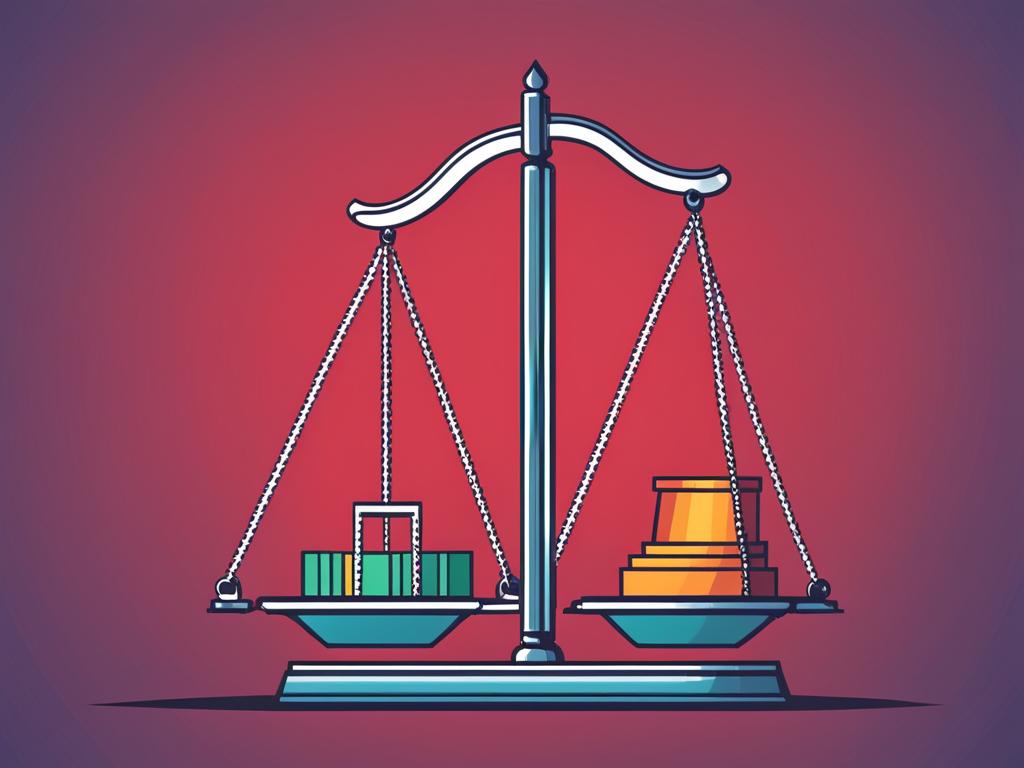Ultimate Guide: How to Buy an LLC in the United States
Buying an LLC can be a great option for entrepreneurs who want to skip the challenges of starting from scratch. There are two main options when buying an LLC: purchasing an existing business or buying an LLC’s assets to form your own. The advantages of buying an existing LLC include better credit history, established vendor relationships, an established brand, a loyal customer base, and established business practices. However, there are also disadvantages such as paperwork, due diligence, ownership changes, and bulk payment. In this ultimate guide, we will outline the steps to buy an LLC in the United States.
Key Takeaways:
- Buying an LLC provides advantages such as better credit history, established vendor relationships, an established brand, a loyal customer base, and established business practices.
- Disadvantages of buying an LLC include paperwork, due diligence, ownership changes, and bulk payment.
- The first step to buying an LLC is finding a business to buy through local entrepreneurial networks and obtaining necessary information.
- Establishing a purchase framework involves settling on a purchase price, determining the deal structure, and obtaining pre-approval paperwork if financing is involved.
- Completing due diligence requires thorough investigation of the business’s finances with the help of an attorney or accountant.
Advantages of Buying an Existing LLC
Buying an existing LLC can offer numerous benefits for entrepreneurs looking to enter the business world without starting from scratch. Here are some advantages of purchasing an existing business:
- Better credit history: When you buy an existing LLC, you can leverage the business’s credit history to secure favorable credit terms with vendors. This can save you time and effort compared to relying solely on your personal credit history.
- Vendor relationships: Purchasing an existing LLC allows you to inherit established vendor relationships. This means you can avoid the hassle of building new relationships from scratch, potentially saving you time and money.
- Branding: An existing LLC often comes with an established brand. This can save you the time and effort of creating and marketing a brand from the ground up. With an established brand, you can benefit from existing brand recognition and customer trust.
- Customer base: Buying a successful or growing LLC means inheriting a loyal customer base. This can provide a solid foundation for your business and potentially lead to immediate revenue generation.
- Established business practices: Adopting the existing LLC’s business practices can save you time and effort in reinventing the wheel. You can benefit from the experience and knowledge gained by the previous owners, giving you a head start in running a successful operation.
- Market knowledge: When you buy a successful existing business, there’s already proof that the business operates in the right market. This eliminates the need for extensive market research and reduces the risk of entering an unprofitable industry.
By purchasing an existing LLC, you can tap into these advantages and increase your chances of success in the business world.
Testimonial:
“Buying an existing LLC was the best decision I made as an entrepreneur. I saved years of hard work and built-in a loyal customer base from day one. The advantages of inheriting an established brand and vendor relationships were instrumental in my business’s rapid growth.” – Jane Smith, CEO of XYZ LLC
Next, we will explore the potential disadvantages of buying an existing LLC in order to provide a comprehensive understanding of the process and help you make an informed decision.
Disadvantages of Buying an Existing LLC
While buying an existing LLC can offer many advantages, there are also some potential disadvantages and challenges to consider before making a purchase. Understanding these drawbacks will help you make an informed decision and navigate the process effectively.
The paperwork involved
One of the primary challenges of buying an existing LLC is dealing with the paperwork. Even though you are purchasing an established business, there are still several legal and administrative documents that need to be updated and transferred into your name. This includes state formation forms, IRS documents, and internal business agreements. The paperwork can be time-consuming and may require the assistance of legal professionals.
Due diligence and financial investigation
Prior to finalizing a purchase, conducting due diligence is crucial. This process involves investigating the business’s financial history, potential liabilities, and other key aspects to ensure that you are making a sound investment. Due diligence can be complex and may require the expertise of an attorney or accountant to thoroughly review the business’s financial statements, tax returns, contracts, and other relevant documents.
Ownership changes and employee retention
Buying an existing LLC means a change in ownership, and this can create challenges in terms of employee retention. The existing employees may have established relationships and loyalty to the previous owner, and there is no guarantee that they will want to continue working under new ownership. Managing this transition effectively and ensuring employee retention can be crucial to maintaining the stability and success of the business.
Bulk payment and upfront costs
When purchasing an existing LLC, you will typically be required to make a significant upfront payment. Unlike starting an LLC from scratch where you can acquire assets gradually, buying an existing business often involves buying the entire business at once. This can require a substantial investment of capital upfront, which may not be feasible for all buyers. It’s important to carefully consider the financial implications and ensure that you have the necessary funds to complete the purchase.

Table: Comparison of Advantages and Disadvantages of Buying an Existing LLC
| Advantages | Disadvantages |
|---|---|
| Better credit history | Paperwork |
| Vendor relationships | Due diligence |
| Established brand | Ownership changes |
| Loyal customer base | Bulk payment |
| Established business practices | |
| Market knowledge |
Step 1: Find a Business to Buy
When looking to buy an LLC, the first step is to find a potential business that aligns with your goals and criteria. Here are some strategies to help you identify potential LLCs for purchase:
- Research local entrepreneurial networks: Check out local chambers of commerce, trade publications, trade associations, and business journals for leads on businesses that are up for sale.
- Attend industry events and conferences: Networking with professionals in your industry can provide valuable insights and opportunities to connect with business owners looking to sell their LLCs.
- Engage with business brokers: Working with a reputable business broker can help streamline your search process by providing access to a curated selection of businesses for sale.
Once you have identified potential businesses, it’s important to gather more information to evaluate their suitability. Request the LLC’s articles of organization, operating agreement, and registered agent information to ensure a smooth ownership transfer. Conduct due diligence to verify the financial health, market position, and legal compliance of the LLC before proceeding to the next step.
By taking the time to thoroughly research and identify potential LLCs for purchase, you increase your chances of finding the right business that aligns with your goals and objectives.
| Strategies for Finding a Business to Buy | Benefits |
|---|---|
| Research local entrepreneurial networks | Access to a wide range of potential businesses for sale |
| Attend industry events and conferences | Networking opportunities and firsthand industry insights |
| Engage with business brokers | Access to curated selection and professional guidance |
Step 2: Establish Purchase Framework
Once you have identified a potential LLC to buy, the next step is to establish a purchase framework. This involves negotiating the purchase terms with the seller and determining the structure of the deal. You need to decide whether you are buying the entire business or just the assets of the LLC. This negotiation process is crucial as it lays the foundation for the entire transaction.
During the negotiation, it is essential to settle on a fair purchase price that reflects the value of the business. You should also consider factors such as the payment terms, any contingencies, and any potential financing involved. It is recommended to obtain pre-approval paperwork from a lender if you are planning to finance the purchase.
Additionally, it is crucial to define the timeline for completing the purchase process. This includes setting deadlines for due diligence, finalizing the purchase agreement, and closing on the purchase. Having a clear timeline helps ensure that both parties are aligned and that the transaction progresses smoothly. To protect the confidentiality of the deal, you may also want to consider signing a confidentiality agreement to prevent any sensitive information from being disclosed during the negotiation process.
In summary, during this step, you will negotiate the purchase terms, determine the deal structure, obtain pre-approval if financing is involved, define the timeline, and consider confidentiality agreements. These actions will establish the framework for the purchase and set the stage for the remaining steps in acquiring the LLC.
Step 3: Complete Due Diligence
Completing due diligence is a crucial step in the process of buying an LLC. It involves thoroughly investigating the financial, legal, and operational aspects of the business to ensure that you have a clear understanding of its current state and potential risks. By conducting thorough due diligence, you can identify any issues or red flags that may affect your decision to purchase the LLC.
To effectively complete due diligence, it is essential to gather and review various documents related to the business. These may include tax returns, financial statements, bank accounts, business licenses, legal documents, contracts or leases, credit terms, and human resources documents. Reviewing these documents will help you gain insights into the financial health, legal compliance, and contractual obligations of the LLC.
It is advisable to seek assistance from professionals such as attorneys or accountants who can provide expert guidance in conducting due diligence. They can help you thoroughly analyze the documents, identify potential risks or legal issues, and ensure that you have a complete understanding of the business’s finances and operations. Their expertise can be invaluable in uncovering any hidden problems that may impact the value or viability of the LLC.
By completing due diligence, you can make an informed decision about whether to proceed with the purchase of the LLC. It allows you to assess the risks and potential benefits associated with the acquisition, providing you with a solid foundation for negotiation and decision-making.
Table: Key Documents for Due Diligence
| Document | Description |
|---|---|
| Tax returns | Review past tax returns to understand the financial performance of the LLC. |
| Financial statements | Examine balance sheets, income statements, and cash flow statements to evaluate the financial health of the business. |
| Bank accounts | Review bank statements to verify the accuracy of reported financial information. |
| Business licenses | Check for the validity and compliance of all necessary licenses and permits. |
| Legal documents | Evaluate contracts, agreements, and legal disputes to understand potential liabilities. |
| Contracts or leases | Review existing contracts or leases to assess obligations and restrictions. |
| Credit terms | Understand the credit terms with suppliers and customers to assess cash flow and financial stability. |
| Human resources documents | Review employee contracts, benefits, and any pending legal or HR issues. |
Step 4: Finalize Your Purchase Agreement
Finalizing the purchase agreement is a crucial step in buying an LLC. This legal document outlines the terms and conditions of the purchase and ensures both parties are on the same page. To ensure a smooth and successful transaction, follow these key steps:
Gather the Necessary Information:
Before finalizing the purchase agreement, gather all relevant information about the LLC. This includes important details such as the physical location of the business, lease transfer or assignment requirements, and any non-compete clauses that need to be included. This information will help draft a comprehensive and accurate agreement.
Engage an Attorney:
It is highly recommended to engage an attorney experienced in business acquisitions to draft or review the purchase agreement. This legal professional will ensure that all necessary clauses and provisions are included to protect your interests. They will also ensure compliance with state laws and regulations.
Having a well-crafted purchase agreement not only protects your investment but also provides a clear roadmap for the future of the LLC.
Negotiate and Finalize:
Once the purchase agreement has been drafted, it’s essential to negotiate with the seller to reach a mutually beneficial outcome. This may involve discussing and resolving any outstanding issues or concerns. Once both parties are satisfied with the terms and conditions, the agreement can be signed, and the purchase can move forward.
By finalizing your purchase agreement, you are ensuring that all the necessary legal and financial aspects are addressed, providing a solid foundation for the purchase of the LLC.

Step 5: Close on the Purchase
After completing due diligence and finalizing the purchase agreement, it’s time to close on the purchase of the LLC. This step involves several important tasks to ensure a smooth transition and finalize the acquisition.
First, it’s crucial to prepare a closing checklist that includes all necessary filings and updates with the state, IRS, and financial institutions. This ensures that all legal requirements are met and that the LLC is officially transferred to the new owner.
Additionally, ownership of the business’s online presence needs to be transferred. This includes websites, vendor accounts, social media profiles, and any other digital assets. By taking ownership of these platforms, the new owner can continue the business’s online operations seamlessly.

Lastly, before signing the purchase agreement, it’s important to ensure that all necessary documents are handed over. This includes transferring any physical assets, contracts, licenses, and other relevant paperwork. By completing this step, the new owner can officially take control of the LLC and begin managing its operations.
Closing on the purchase of an LLC marks the final stage in the acquisition process. It’s a crucial step that involves careful attention to detail and proper execution to ensure a successful transition and fulfillment of the purchase agreement.
Conclusion
Buying an LLC can be a smart choice for entrepreneurs who want to fast-track their business ownership journey. By considering the advantages and disadvantages, finding the right business to buy, establishing a purchase framework, completing due diligence, finalizing the purchase agreement, and closing on the purchase, you can successfully acquire an existing LLC. Remember to consult professionals for legal and financial advice throughout the process to ensure a smooth transition.
FAQ
What are the advantages of buying an existing LLC?
The advantages of buying an existing LLC include better credit history, established vendor relationships, an established brand, a loyal customer base, and established business practices.
What are the disadvantages of buying an existing LLC?
The disadvantages of buying an existing LLC include paperwork, due diligence, ownership changes, and a potentially large upfront payment.
How can I find a business to buy?
Research local entrepreneurial networks, such as local chambers of commerce, trade publications, trade associations, and business journals.
How do I establish a purchase framework?
Settle on a purchase price with the seller and determine the structure of the deal (buying the entire business or just assets).
What is due diligence and how do I complete it?
Due diligence is the process of investigating the business’s finances. Gather and review documents such as tax returns, financial statements, bank accounts, business licenses, legal documents, contracts or leases, credit terms, and human resources documents.
How do I finalize the purchase agreement?
Have an attorney draft or review the purchase agreement based on the specific type of purchase (membership-interest purchase agreement, asset purchase agreement, or general business purchase agreement).
What do I need to do to close on the purchase?
Prepare a closing checklist to ensure all necessary filings and updates are made with the state, IRS, and financial institutions. Transfer ownership of business websites, vendor accounts, and social media profiles.

